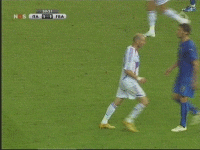1.1 Introduction
The modal auxiliaries in English are: can, could, had better, may, might, must, ought to, shall, should, wild, would. Modal auxiliaries generally express a speaker’s attitude, or “moods”. For example, modal can express that a speaker feels something is necessary, advisable, permissible, possible, or probable; and in addition, they can convey the strength of these attitudes. Each modal has more than one meaning or use.
A. Modal Auxiliaries
I, You, We, They, He, She, It ------->>>
Modals do not take a final –s, even when the subject is he, she, or it. For example:
Correct : John can do it.
Incorrect : John cans do it.
Modals are followed immediately by the simple form of a verb. For example:
Correct : Amy can do it.
Incorrect : Amy can to do it. / He can does it. / He can did it.
The only exception is ought, which is followed by an infinitive (to + the simple form of a verb).
For example: Anna ought to go to the meeting.
B. Similar expressions
Those are some common expressions whose meanings are similar to those of some of the modal auxiliaries. For example, be able to is similar to can; be going to is similar to will.
An infinitive (to + the simple form of a verb) is used in these similar expressions.
Exercise 1
Point out and correct the errors!
1. She can to see it.
2. She cans see it.
3. She can sees it.
4. She can saw it.
5. Can you please to pass the rice?
The modal auxiliaries in English are: can, could, had better, may, might, must, ought to, shall, should, wild, would. Modal auxiliaries generally express a speaker’s attitude, or “moods”. For example, modal can express that a speaker feels something is necessary, advisable, permissible, possible, or probable; and in addition, they can convey the strength of these attitudes. Each modal has more than one meaning or use.
A. Modal Auxiliaries
I, You, We, They, He, She, It ------->>>
- can do it.
- could do it.
- may do it.
- might do it.
- must do it.
- shall do it.
- should do it.
- will do it.
- would do it.
- had better do it.
- ought to do it.
Modals do not take a final –s, even when the subject is he, she, or it. For example:
Correct : John can do it.
Incorrect : John cans do it.
Modals are followed immediately by the simple form of a verb. For example:
Correct : Amy can do it.
Incorrect : Amy can to do it. / He can does it. / He can did it.
The only exception is ought, which is followed by an infinitive (to + the simple form of a verb).
For example: Anna ought to go to the meeting.
B. Similar expressions
- be able to do it
- be going to do it
- be supposed to do it
- be to do it
- have to do it
- have got to do it
- used to do it.
Those are some common expressions whose meanings are similar to those of some of the modal auxiliaries. For example, be able to is similar to can; be going to is similar to will.
An infinitive (to + the simple form of a verb) is used in these similar expressions.
Exercise 1
Point out and correct the errors!
1. She can to see it.
2. She cans see it.
3. She can sees it.
4. She can saw it.
5. Can you please to pass the rice?


Tidak ada komentar:
Posting Komentar